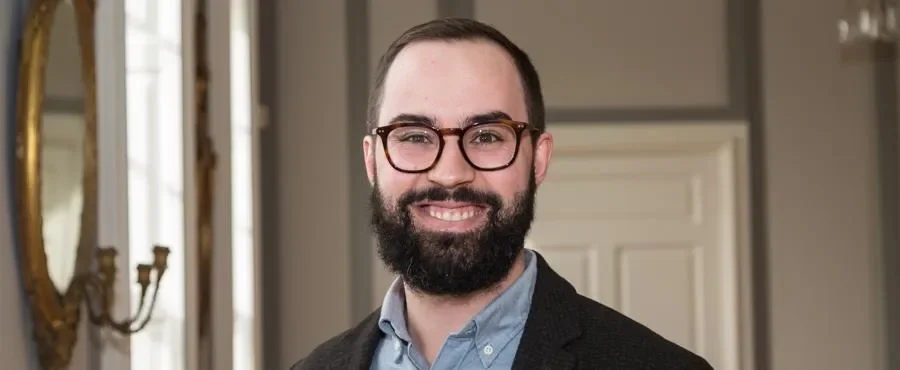

New readings on the ever-changing Bible
Spotlight on Research chats with Dr Garrick Allen, Lecturer in New Testament, DCU School of Philosophy, Theology and Music
Garrick, you are studying the Bible, what part of it are you looking at, and why?
“I research the Book of Revelations in the New Testament, which is basically a weird one, it’s the one with the Four Horsemen of the Apocalypse and beasts and the end of the world.
The broader reason why I focus my research on the Bible, is that it is not a static, never-changing thing - it is always subject to new interpretations and translations and it still informs the language and thinking around many aspects of culture and society, it lingers in the background even where religion and faith are no longer as big a part of those cultures and societies.”
What particularly interests you, from a research perspective?
“I’m particularly interested in the texts of the Bible. There are a lot of them, the New Testament alone is based on more than 5,000 Greek manuscripts, with ancient citations from dozens of other sources across multiple languages.
A big theme in my research is how they have been interpreted and translated over the centuries, and also how new technology like digital media could change how we research and engage with the Bible into the future.
That was the subject of a big Irish Research Council project I was involved with, which culminated in an international conference here at DCU called Herman Hoskier and the Future of Textual Scholarship on the Bible.”
What was the upshot of the conference?
“There were lots of different perspectives. One of the main points that arose was that the editing of and engagement with manuscripts should reflect the diversity of the cultures in which they were produced and read.
We also looked at the possibilities of digitisation, and how critical interpretations and different editions could be linked to online versions of the Bible.
We will be publishing a series of essays from the conference soon.”
What sparked your journey into this area of research?
“I am from Seattle, and I went to a Christian liberal arts college where we were required to do Biblical Studies. We had to learn Greek, Latin, Hebrew and Aramaic, and I became interested in how people read their sacred traditions in the first century.”
What are you working on now?
“I’m writing a book about how biblical manuscripts can transmit knowledge and what this tell us about how they were interpreted. I’m also researching material held in the Chester Beatty collection in Dublin, and I am applying for funding to do a big project that digitally catalogues the titles of the manuscripts in the Greek New Testament.”
All 5,000 of them?
“Nearly! My aim is to catalogue and analyse 3,500 manuscripts and create an online, open access database that people can search and use, providing information on the way their differing titles and other features show how they were interpreted.
The impact of this would be to underscore how the New Testament is not some disembodied unchanging source of authority, but instead it is always culturally negotiated, produced in context and concrete but diverse.”
And what do you to do to take a break?
“I spent a lot of time with my family, which includes a lot of time taking my daughter to the playground. I love baseball too, and I played a lot of it when I worked as a post-doc in Germany, but I had to stop due to injury. I can still be a fan though!”
